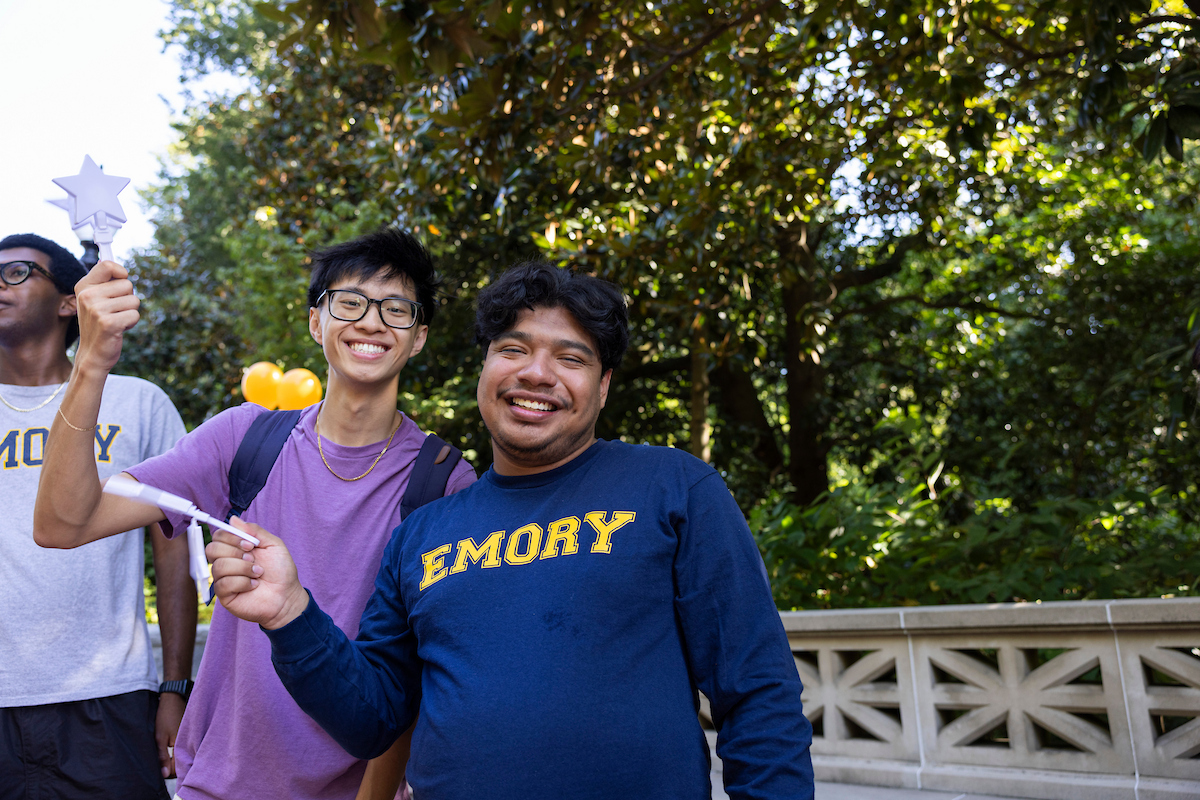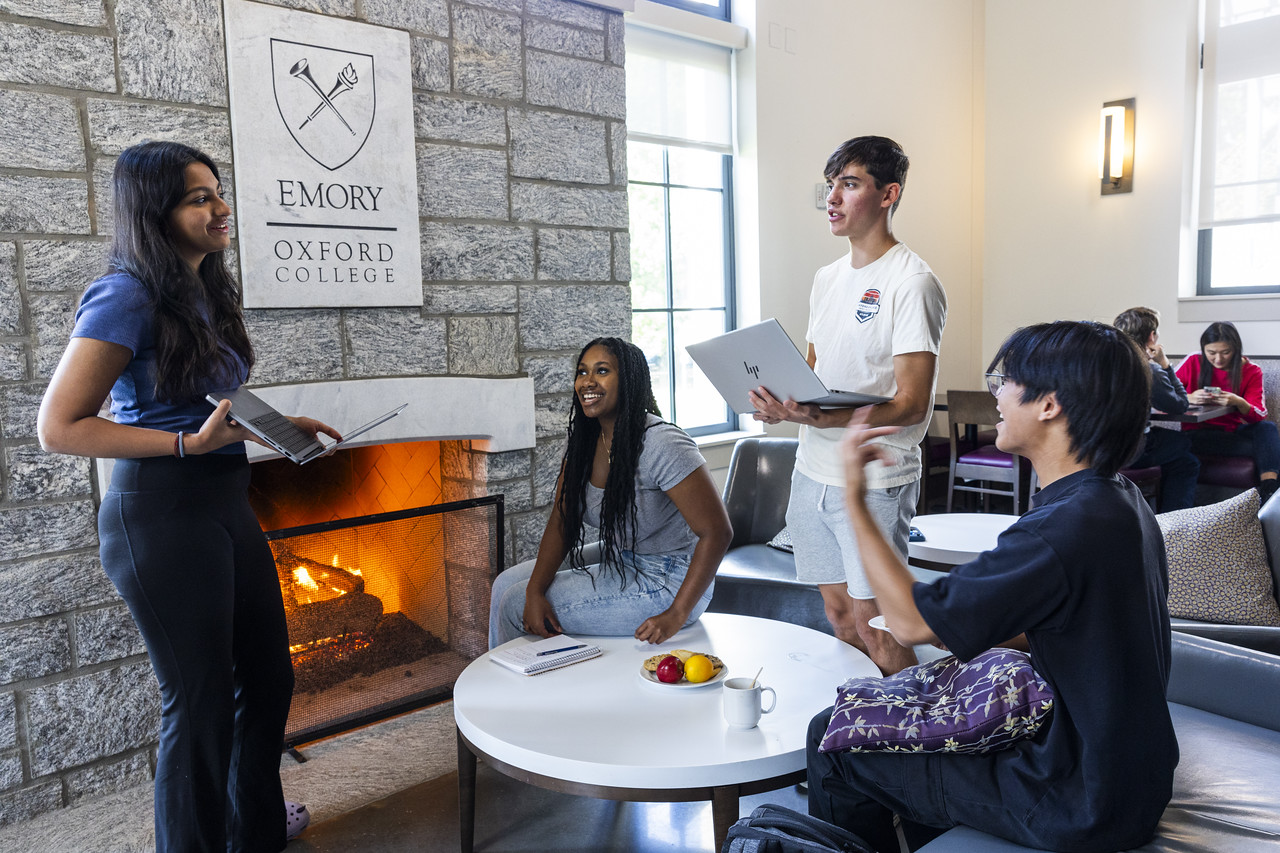Choosing a college is one of the most exciting, and sometimes overwhelming, decisions you'll make.…
Strong Personal Statements, Part 1: Using an Anecdote Genuinely

We’re sharing exceptional personal statements from last year’s applicants in hopes of illustrating that a good personal statement can cover a wide range of topics, but ultimately, showcases the student’s character, curiosity, and voice. These statements, written by students now enrolled at Emory University, were selected for a multitude of reasons, and we asked our admission staff to share what made each statement stand out. This is number 1 of a 5-part series on application writing; read Part 2 here, Part 3 here, Part 4 here, and Part 5 here.
Personal Statement Question: Some students have a background, identity, interest, or talent that is so meaningful they believe their application would be incomplete without it. If this sounds like you, then please share your story.
In the fourth grade, I had a dream: I walked into Mrs. Ferris’ sunlight-filled English class wearing a headscarf over my school uniform, a navy polo and a grey, pleated skirt. Black leggings covered my skinny legs and a long white undershirt covered my scrawny arms. I interacted with my friends as normal, talking about nothing of real importance. In this deceitfully innocent figment of my imagination, the change inside of me was undeniable. Allah held a specific interest in the price of my soul, and I would offer it to Him.
Sometimes I wonder how I could have been so foolish to believe I could carry the weight of Islam on my back in the heart of the Bible Belt without being crushed.
At nine years old, I petitioned my parents to start wearing hijab, the Arabic term for the veil Muslim women wear. I wrote lists of pros and cons (including: “boys won’t think I’m pretty,” “friends won’t like me,” “friends will have to like me for who I am,” and “don’t have to do hair in the morning”). Armed with an abundance of beautiful, handmade scarves, designed to stop my beauty from distracting the world from my intellect, I was ready. I thought I was prepared for womanhood.
I could not have imagined how hyper-conscious I would be of the fabric on my head. I felt the stares of strangers, judging me for the crimes of radicals faraway. The layers of clothing scorched my skin during soccer practice. My nickname, “towelhead,” echoed in my mind. I felt an isolating physical disparity between me and everyone around me: I covered my hair. They did not.
The longer I wore the headscarf, the further it slipped down my head, showing more and more of the hair that my non-Muslim friends so frequently told me I should show off. My clothes grew so tight they suffocated me. This symbol of modesty and pure religion became nothing but a piece of cloth.
During sophomore year of high school, after gradual stages of escalating discussion and discomfort, I made the ultimate decision to stop wearing the headscarf. It no longer accurately reflected my identity. The world did not see me anymore; they only saw a headscarf. I assumed that this decision would be my liberation; but I was soon transferred to a new prison of public opinion. I became a glorified piece of meat as I walked into the gates of the Randolph football game, petted and gaped at and given all too much attention for someone in her typical environment. My noble cause of personal improvement was degraded to lunch room gossip and superficial professions of support as everyone pretended to understand something as incomprehensible as feelings and emotions. Ironically, now that I looked the same as any other teenage girl, I felt farther away than ever.
I am the product of a conservative family residing in the Deep South. These often contradictory belief systems of my family and of the people around me have shaped me into an individual who refuses to be lumped into generalities, negative or positive. No cause, no religion, no mantra is worth sacrificing personal legitimacy. As a result of my approach towards culture and spirituality not fitting exactly under any specific umbrella, I have learned to find my peace in thinking differently than those around me rather than shying away from my thoughts. The difficult decisions I made regarding the hijab are a reflection of my dedication to being true to myself and what is right. But what exactly is right? And who am I? I am still figuring those questions out.
Feedback from Admission Staff
As we read applications, every student has a team of admission staff assigned to their file to thoroughly review it and assess the student’s potential. The staff responsible for this student’s file had this to say about her personal statement:
After reading hundreds of essays that all seemed to blend together, I was grateful to get to a genuine and interesting essay from this student. Her essay “worked” because it was well-written, interesting, and effective in that it gave me a sense of her character.
Rather than telling me about herself, she was able to show me. Through this anecdote, I saw a student who was intelligent, self-aware, questioning, and honest—all things that can’t be fabricated. It’s just who she genuinely is. I could imagine her leading the discourse in our classrooms, and I knew she would be a welcome addition to our campus community.
This topic choice also worked well because it didn’t come off as contrived or hyperbolic. In addition, she showed me a side of herself that I would have never seen in the rest of the application.
Often, students get caught in the trap of trying to think of—or create—a meaningful topic for their essay. Or, they go the opposite route and give me a resume in paragraph form.
When an essay reads as manufactured or gives no new information, its entire purpose (to show the students personality and voice) is lost. This essay provided a solid foundation on which I could understand the student as a person and an applicant.
Don’t forget to read Part 2 here, Part 3 here, Part 4 here, and Part 5 here.
Don’t hesitate to connect with us by posting a comment to this blog, tweeting us @emoryadmission, or emailing us at admission@emory.edu. We look forward to hearing from you!



I want to enroll at Emory University to pursue my Phd in Epidemiology. ow can I share my draft statement of purpose for review before my application date.
Hi there– the Inside Emory Admissions blog is only about undergraduate admissions. You’ll need to contact Emory’s Laney Graduate School: visit http://www.graduateschool.emory.edu/admissions/index.html, or email lgsadmissions@emory.edu.